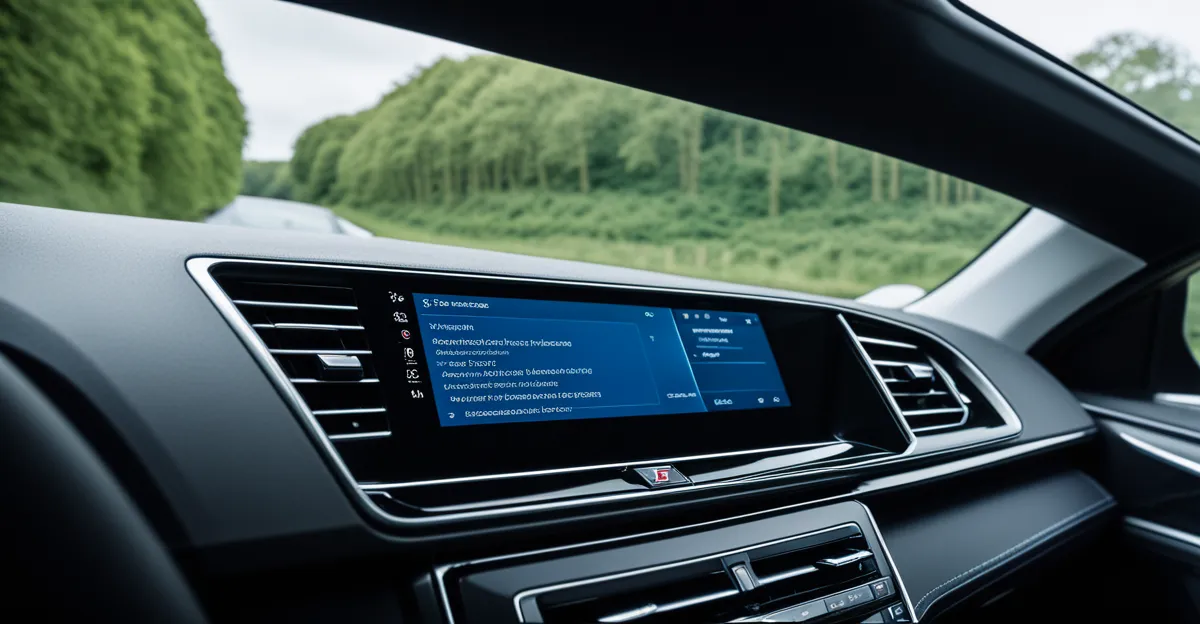Overview of Recent Technological Advancements in the UK Automotive Scene
Recent UK automotive innovations demonstrate a dynamic shift toward cutting-edge technology trends that are shaping the industry’s future. Over the past 1-2 years, key areas of innovation have expanded significantly, driving growth and competitiveness. The sector is experiencing profound changes in electric vehicles (EVs), autonomy, connectivity, and sustainability.
Electric vehicles are no longer niche products; the UK automotive scene has embraced these changes with increased production and evolving technology. Autonomous driving systems are advancing through rigorous trials and improved driver assistance features that enhance safety and convenience. Meanwhile, connectivity in vehicles—powered by emerging technologies like 5G and automotive IoT—has transformed the in-car experience and data management.
Also to read : Exploring the Future: What Technological Innovations Will Dominate the UK Automotive Industry?
Sustainability is becoming central to innovation, focusing on eco-friendly manufacturing practices and reduced carbon footprints. These technological developments collectively reflect how the UK automotive industry leverages recent advancements to position itself as a leader in next-generation vehicle design and production. Attention to these trends is vital to understanding how industry players are responding to shifting market demands and regulatory environments effectively.
Advances in Electric Vehicle Development and Adoption
The electric vehicles UK market has experienced remarkable growth, driven by a surge in both manufacturing capabilities and consumer interest. In the past 1-2 years, several UK-based automakers have expanded EV production with new model launches emphasizing longer range and performance. Battery technology improvements, such as higher energy density and faster charging rates, are pivotal in making electric vehicles more practical and appealing.
Also read : How Will Electric Vehicles Transform the Job Market in the UK Automotive Sector?
A critical factor supporting this growth is the expanding EV infrastructure, including an increasing number of public and private charging stations across urban and rural areas. Such networks ease range anxiety and encourage wider adoption. Government incentives further bolster this trend by offering grants, tax breaks, and subsidies for both EV buyers and manufacturers. These policies align perfectly with the broader shift seen in recent advancements, underscoring technology trends that accelerate the UK’s transition to electrification.
Together, these elements create a robust ecosystem where electric vehicles are not only manufactured domestically but are also supported by the infrastructure and policy crucial to their success. This solid foundation signals a sustained commitment to electrification as a central pillar of UK automotive innovations.
Progress in Autonomous and Assisted Driving Technologies
Recent advancements in autonomous vehicles UK have accelerated, marked by extensive pilots and road trials across the country. These initiatives test the feasibility and safety of self-driving technology in diverse environments, refining algorithms and sensor integration. Industry collaboration remains key; major automakers and tech firms pool resources to fuel self-driving innovation and bring viable products closer to market readiness.
Enhanced ADAS (Advanced Driver Assistance Systems) have become a focal point for UK manufacturers, incorporating features like adaptive cruise control, lane-keeping assist, and automated emergency braking. These systems improve vehicle safety and driver confidence, bridging the gap between conventional and fully autonomous driving.
What differentiates UK progress in autonomous tech? Rigorous regulatory frameworks support testing while encouraging innovation, allowing real-world data collection for system improvements. Moreover, the UK’s investment in smart infrastructure complements vehicle capabilities, enabling better communication between roadways and cars.
Together, these elements position the UK as a leader in self-driving tech development. Adoption of autonomous vehicles and cutting-edge driver assistance will likely expand, promising enhanced road safety and new mobility solutions that respond precisely to emerging consumer and environmental demands.
Growth in Connected Car Technologies and Digital Integration
Connected cars UK have surged ahead as a crucial facet of recent advancements. Over the past 1-2 years, automotive IoT integration has expanded, enabling vehicles to communicate with infrastructure, other vehicles, and cloud services. This connectivity fosters safer, more efficient driving experiences while unlocking innovative features.
A major technology trend is the widespread adoption of 5G networks, which support real-time data transmission and low latency communication. This enhances in-vehicle services such as smart infotainment, navigation, and personalized driving assistance. Moreover, over-the-air updates allow manufacturers to remotely improve vehicle software, addressing bugs or adding functionality, thus prolonging vehicle lifespans and improving user satisfaction.
Partnerships between tech firms and UK automakers accelerate these innovations. However, data security and privacy remain critical concerns. Robust encryption and cybersecurity measures are becoming industry standards to protect sensitive user information from potential breaches.
Such developments illustrate how UK automotive innovations in connected car technology are not just futuristic ideas but tangible solutions enhancing driver convenience, safety, and the overall automotive ecosystem in line with recent advancements and prevailing technology trends.







